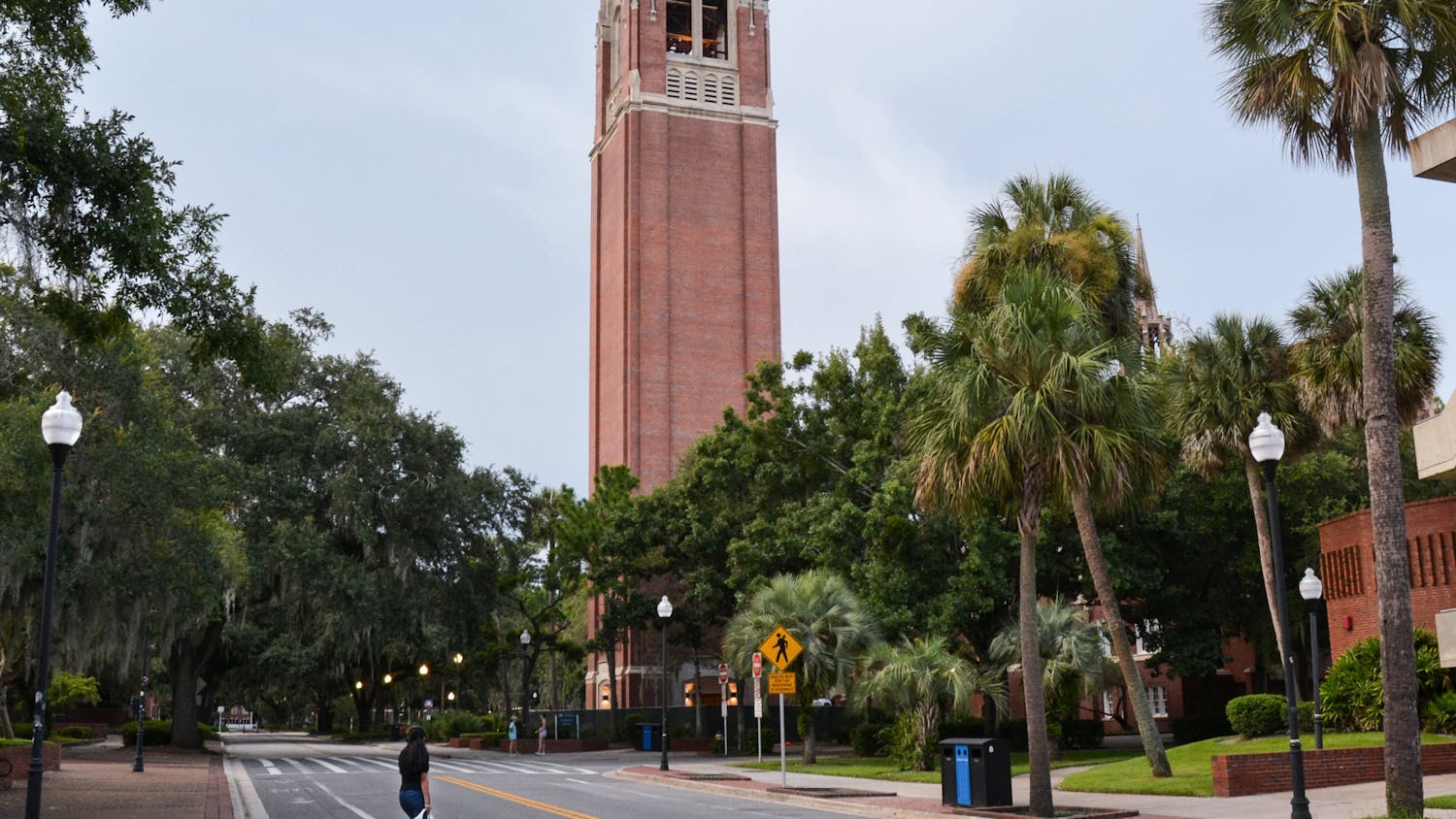Bryce Zinckgraf was unlocking his bike when she handed him the pills.
The woman approaching him from across Turlington Plaza seemed out of place — it was 7 p.m., and she carried a bright orange sack.
The 20-year-old environmental engineering junior doesn’t usually accept handouts, but, thinking it was a coupon, he reluctantly took a flier.
“This strengthens your focus,” the woman said and walked away.
Zinckgraf was left confused and holding two white packets that rested on top of the flier, each containing a bright orange pill — 770 milligrams of pharmaceutical-strength cognitive potential.
Tampa supplement company NexGen Biolabs released AdderRx, an Adderall alternative, on Sept. 5.
Distributors gave away anywhere from 5,000 to 8,000 pill samples at each of 10 universities — including UF — nationwide over the last two weeks, said CEO Josh Carlucci.
Marketed as the “perfect companion to college students during exam week,” the company’s website claims AdderRx improves cognitive function, focus and mental clarity.
But according to some pharmacists, the supplement’s formula of stimulants and nootropics, or smart drugs, could be more dangerous than it is beneficial.
Diane Nykamp, a professor of pharmacy practice at Mercer University, said she wasn’t able to identify five of AdderRx’s eight proprietary ingredients in a supplement database.
“You don’t know what’s really in there,” she said. “And the ingredients in there aren’t safe.”
Two ingredients lacked sufficient evidence for their effectiveness in improving cognitive function, she said. And the remaining ingredient, synephrine, could potentially harm users.
Synephrine is structurally similar to ephedrine, an ingredient the Food and Drug Administration banned in supplement products in 2004. Synephrine is also currently banned by the World Doping Agency and the NCAA, said Nykamp.
“Everyone thought synephrine was safe,” Nykamp said. “It’s not.”
But the NexGen Biolabs website claims that “AdderRx has undergone stringent clinical testing and has been proven to be 100% safe,” and that the non-FDA approved supplement doesn’t have the side effects typically associated with Adderall.
“There is no dependence with this supplement,” Carlucci said.
However, dangerous increases in blood pressure and irregular heart rate are side effects shared by both Adderall and synephrine.
“I wouldn’t recommend for anyone to take it,” said Kristin Weitzel, a clinical associate professor at UF. “‘Clinically proven’ doesn’t have the same meaning as on the side of a Tylenol bottle.”
And those symptoms only get worse when combining the supplement with caffeine or alcohol, Weitzel said.
“Great to take before a night of partying as well — keeps me bumping until the bars close,” boasts one customer in a testimonial on the NexGen Biolabs website.
Carlucci stood by the safeness of his product, adding that it’s produced in an FDA-approved facility.
“[Students] should be checking the package to see if there are ingredients that they might have an adverse reaction to,” he said.
Nykamp remained skeptical of the supplement’s quality.
“It’s just someone looking to make some money fast by using similar names,” she said.
She noted that on its free samples, NexGen Biolabs doesn’t list the amounts of ingredients in each pill.
At UF, students reported seeing the product being handed out on Turlington Plaza and near Orange & Brew.
But UF spokeswoman Janine Sikes said NexGen Biolabs did not apply for a permit to hand out AdderRx on campus. She alerted University Police to stop the distribution of the product until the company received a permit.
“They do not have permission to be there,” Sikes said.
For some students like Zinckgraf, a permit won’t convince them to try the AdderRx samples they received.
“I’ve seen people handing out sunscreen before,” he said. “The fact that this was a pill, it made me a little bit uneasy.”
Zinckgraf said he wanted to see studies proving AdderRx’s effectiveness and safety before considering taking the pills.
“It doesn’t say much on the label,” said McKenzie Lentz, a 21-year-old architecture senior. “Considering that it hasn’t been approved by the FDA, I have no idea if it’s safe or not.”
“I took it home and threw it in the trash, but other people may want to try that product,” Zinckgraf said. “In a high-pressure environment like college, I think people would be willing to take unnecessary risks.”
Contact Michael Scott Davidson at mdavidson@alligator.org.





